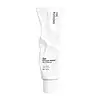What's inside
What's inside
 Key Ingredients
Key Ingredients

 Benefits
Benefits

 Concerns
Concerns

No concerns
 Ingredients Side-by-side
Ingredients Side-by-side

Water
Skin ConditioningMethylpropanediol
SolventPropylheptyl Caprylate
Emollient1,2-Hexanediol
Skin ConditioningPolyglyceryl-6 Distearate
EmulsifyingLaminaria Japonica Extract
Skin ProtectingEclipta Prostrata Leaf Extract
Skin ConditioningCentella Asiatica Extract
CleansingFicus Carica Fruit Extract
HumectantAcmella Oleracea Extract
Skin ProtectingHydrogenated Lecithin
EmulsifyingAmmonium Acryloyldimethyltaurate/Vp Copolymer
Jojoba Esters
EmollientXanthan Gum
EmulsifyingCetyl Alcohol
EmollientPolyglyceryl-3 Beeswax
EmulsifyingFructooligosaccharides
HumectantBeta-Glucan
Skin ConditioningButylene Glycol
HumectantPanthenol
Skin ConditioningHydrolyzed Hyaluronic Acid
HumectantRaffinose
Skin ConditioningFolic Acid
Skin ConditioningCeramide NP
Skin ConditioningCholesterol
EmollientTromethamine
BufferingPalmitoyl Pentapeptide-4
Skin ConditioningEthylhexylglycerin
Skin ConditioningWater, Methylpropanediol, Propylheptyl Caprylate, 1,2-Hexanediol, Polyglyceryl-6 Distearate, Laminaria Japonica Extract, Eclipta Prostrata Leaf Extract, Centella Asiatica Extract, Ficus Carica Fruit Extract, Acmella Oleracea Extract, Hydrogenated Lecithin, Ammonium Acryloyldimethyltaurate/Vp Copolymer, Jojoba Esters, Xanthan Gum, Cetyl Alcohol, Polyglyceryl-3 Beeswax, Fructooligosaccharides, Beta-Glucan, Butylene Glycol, Panthenol, Hydrolyzed Hyaluronic Acid, Raffinose, Folic Acid, Ceramide NP, Cholesterol, Tromethamine, Palmitoyl Pentapeptide-4, Ethylhexylglycerin
Water
Skin ConditioningGlyceryl Stearate
EmollientButylene Glycol
HumectantErythritol
HumectantFructooligosaccharides
HumectantAvena Sativa Kernel Extract
AbrasiveCeramide NP
Skin ConditioningCeramide Ns
Skin ConditioningCeramide Ng
Skin ConditioningCeramide As
Skin ConditioningCeramide EOP
Skin ConditioningCeramide AP
Skin ConditioningTocopherol
AntioxidantSodium Hyaluronate
HumectantGlycerin
HumectantC14-22 Alcohols
Emulsion StabilisingPEG-100 Stearate
Sodium Polyacryloyldimethyl Taurate
Emulsion StabilisingCaprylyl Methicone
Skin ConditioningSodium Benzoate
MaskingC12-20 Alkyl Glucoside
EmulsifyingC30-45 Alkyl Cetearyl Dimethicone Crosspolymer
EmollientIsohexadecane
EmollientPEG-7 Glyceryl Cocoate
EmulsifyingPhenoxyethanol
Preservative1,2-Hexanediol
Skin ConditioningHydrogenated Lecithin
EmulsifyingPropylene Glycol
HumectantCastor Oil Hydrogenated Ethoxylated
PerfumingEthylhexylglycerin
Skin ConditioningWater, Glyceryl Stearate, Butylene Glycol, Erythritol, Fructooligosaccharides, Avena Sativa Kernel Extract, Ceramide NP, Ceramide Ns, Ceramide Ng, Ceramide As, Ceramide EOP, Ceramide AP, Tocopherol, Sodium Hyaluronate, Glycerin, C14-22 Alcohols, PEG-100 Stearate, Sodium Polyacryloyldimethyl Taurate, Caprylyl Methicone, Sodium Benzoate, C12-20 Alkyl Glucoside, C30-45 Alkyl Cetearyl Dimethicone Crosspolymer, Isohexadecane, PEG-7 Glyceryl Cocoate, Phenoxyethanol, 1,2-Hexanediol, Hydrogenated Lecithin, Propylene Glycol, Castor Oil Hydrogenated Ethoxylated, Ethylhexylglycerin
Ingredients Explained
These ingredients are found in both products.
Ingredients higher up in an ingredient list are typically present in a larger amount.
1,2-Hexanediol is a synthetic liquid and another multi-functional powerhouse.
It is a:
- Humectant, drawing moisture into the skin
- Emollient, helping to soften skin
- Solvent, dispersing and stabilizing formulas
- Preservative booster, enhancing the antimicrobial activity of other preservatives
Butylene Glycol (or BG) is used within cosmetic products for a few different reasons:
Overall, Butylene Glycol is a safe and well-rounded ingredient that works well with other ingredients.
Though this ingredient works well with most skin types, some people with sensitive skin may experience a reaction such as allergic rashes, closed comedones, or itchiness.
Learn more about Butylene GlycolCeramide NP is a type of ceramide and formally known as ceramide 3.
Ceramides are intercellular lipids naturally found in our skin that bonds dead skin cells together to create a barrier. They are known for their ability to hold water and thus are a great ingredient for dry skin.
Ceramides are an important building block for our skin barrier. A stronger barrier helps the skin look more firm and hydrated. By bolstering the skin ceramides act as a barrier against irritating ingredients. This can help with inflammation as well.
If you would like to eat ceramides, sweet potatoes contain a small amount.
Read more about other common types of ceramides here:
Ceramide AP
Ceramide EOP
Ethylhexylglycerin (we can't pronounce this either) is commonly used as a preservative and skin softener. It is derived from glyceryl.
You might see Ethylhexylglycerin often paired with other preservatives such as phenoxyethanol. Ethylhexylglycerin has been found to increase the effectiveness of these other preservatives.
Fructooligosaccharides is an alternative sweetener. It is often derived from the blue agave plant.
This ingredient is a prebiotic and helps to hydrate the skin. Emerging studies are also showing fructooligosaccharides to have antioxidant properties.
As a humectant, Fructooligosaccharides helps draw moisture to the skin, helping to hydrate the skin.
Bananas, onions, garlic, asparagus, jícama, and leeks also contain fructooligosaccharides.
Learn more about FructooligosaccharidesHydrogenated Lecithin is created from the hydrogenation of lecithin (a group of phospholipids). Hydrogenation is a chemical reaction between hydrogen and another element.
This ingredient is an emollient and emulsifier. As an emollient, it helps soften skin by trapping moisture within. As an emulsifier, it prevents oil and water ingredients from separating.
Water. It's the most common cosmetic ingredient of all. You'll usually see it at the top of ingredient lists, meaning that it makes up the largest part of the product.
So why is it so popular? Water most often acts as a solvent - this means that it helps dissolve other ingredients into the formulation.
You'll also recognize water as that liquid we all need to stay alive. If you see this, drink a glass of water. Stay hydrated!
Learn more about Water